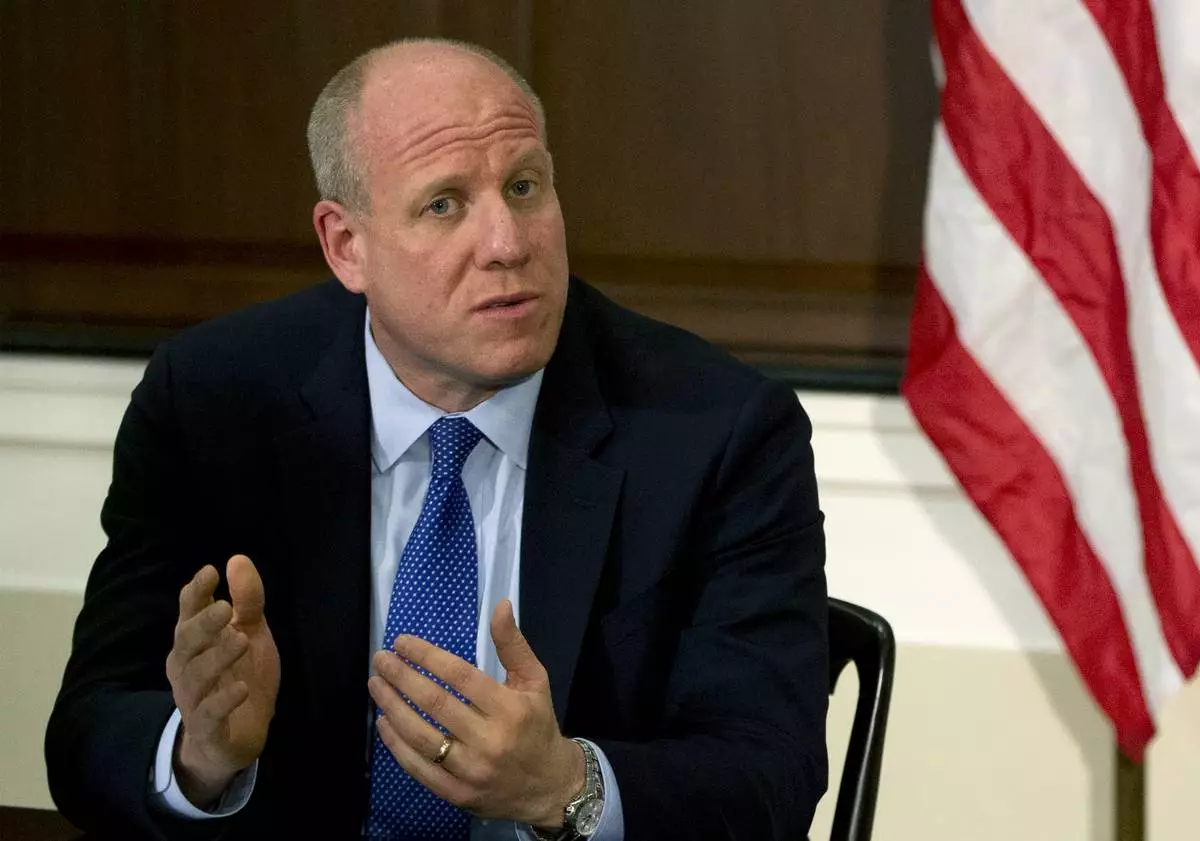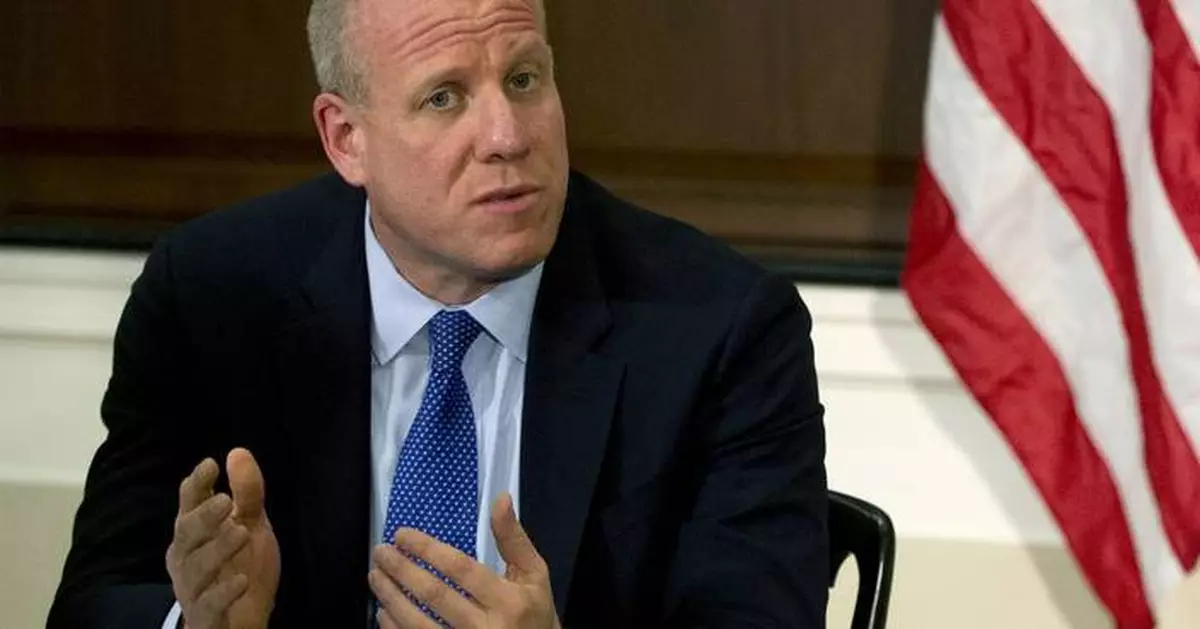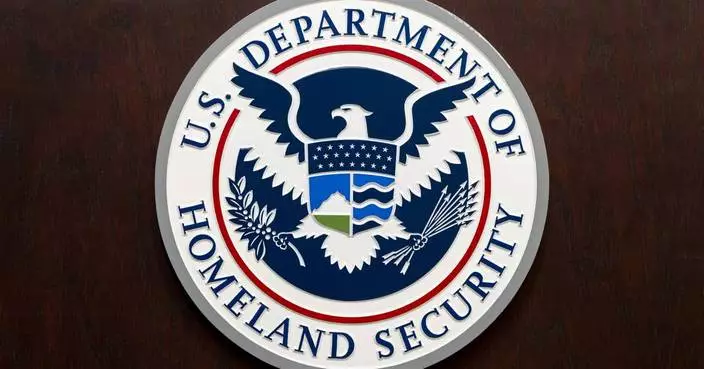NEW YORK (AP) — The former head of food services for New York City public schools was sentenced to two years in prison on Monday for a bribery scandal that resulted in children being served chicken tenders contaminated with metal and bone.
Eric Goldstein, the former school food chief, was sentenced in Brooklyn federal court along with three men who ran a vendor that had contracted with the city to provide school food — Blaine Iler, Michael Turley and Brian Twomey. Iler was sentenced to one year and a $10,000 fine, Turley to 15 months and Twomey to 15 months and a $10,000 fine.
All four men were found guilty of bribery, conspiracy and other charges after a monthlong trial in 2023.
“Eric Goldstein corruptly abused his high-ranking position of trust as a public official and pursued lucrative bribes at the expense of school children, many of whom rely on healthy meals provided by the New York City Department of Education,” U.S. Attorney Breon Peace said in a statement.
Peace said Goldstein “prioritized lining his pockets with payoffs from his co-defendants” to ensure that the defendants' food stayed in the schools even after plastic, bones and metal were found in the chicken.
Messages seeking comment were sent to attorneys for Goldstein, Iler, Turley and Twomey.
Goldstein oversaw school food as head of New York City's Office of School Support Services from 2008 to 2018. Iler, Twomey and Turley had a company, SOMMA Food Group, that contracted with the city to provide school food.
Around the same time, the three men and Goldstein formed another company to import grass-fed beef. Prosecutors argued that the venture was a way to pay Goldstein off.
Prosecutors said the largest bribe payment was made in the fall of 2016 after the city school system had stopped serving SOMMA’s chicken tenders because an employee had choked on a bone in a supposedly boneless chicken tender.
According to prosecutors, Iler, Turley and Twomey agreed on Nov 29, 2016, to pay a bribe Goldstein had asked for, and one day later Goldstein approved reintroducing SOMMA’s chicken products into the schools. SOMMA’s products were served in schools until April 2017 despite repeated complaints that the chicken tenders contained foreign objects, prosecutors said.

FILE - Eric Goldstein, Chief Executive, Office of School Support Services, New York City Department of Education, speaks in a discussion with other school leaders and experts on school nutrition at an event in the Eisenhower Executive Office Building on the White House complex, May 27, 2014, in Washington, D.C. (AP Photo/Pablo Martinez Monsivais, File)




















































